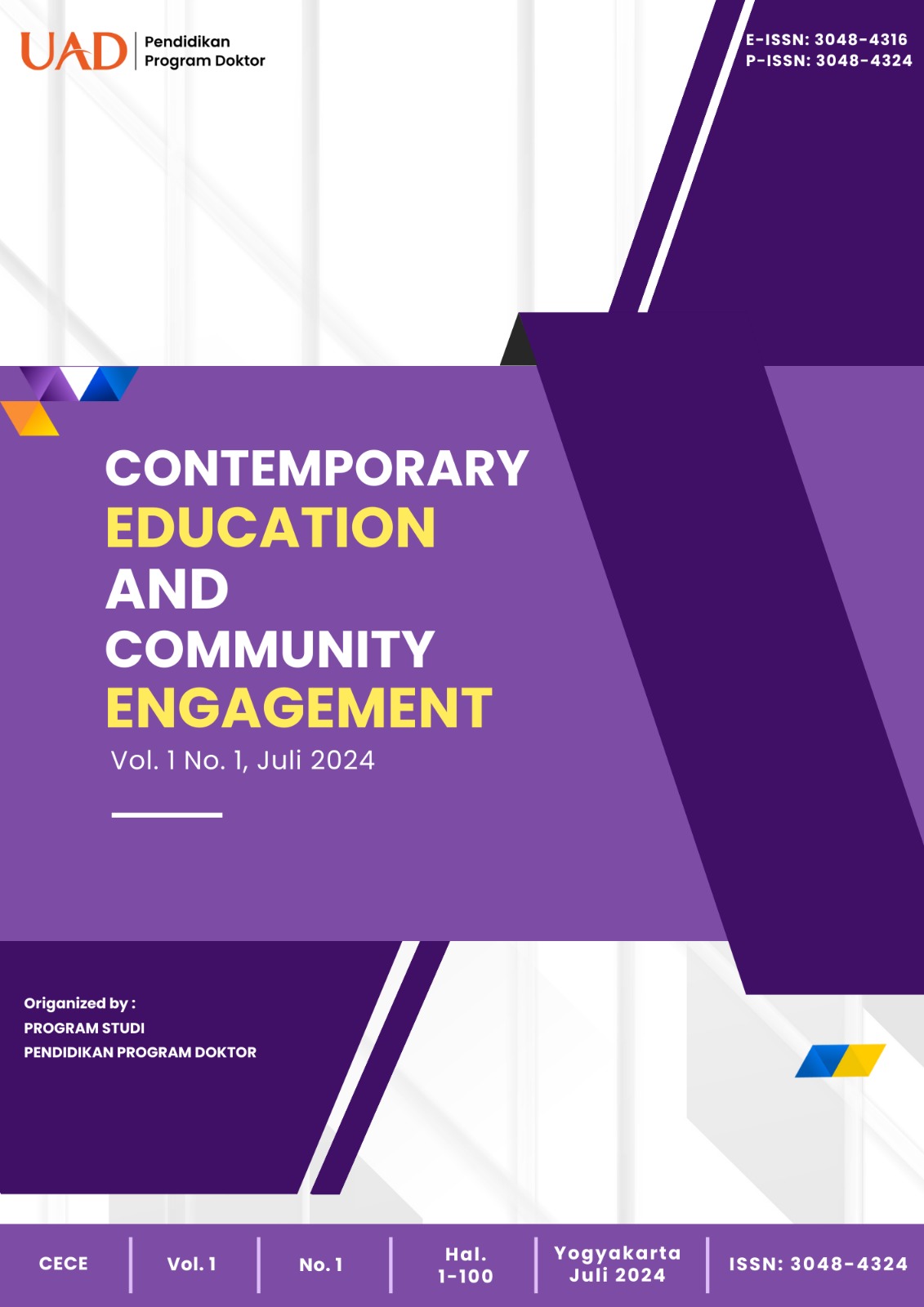The Influence of Problem-based Differentiated Learning on Critical Thinking Skills in 5th-Grade Students at Muhammadiyah Suronatan Elementary School, Yogyakarta
DOI:
https://doi.org/10.12928/cece.v1i1.821Keywords:
critical thinking skills, differentiated learning, elementary school, problem-solvingAbstract
This research aims to determine the effect of problem-based differentiated learning on the critical thinking skills of 5th-grade students at Muhammadiyah Suronatan Elementary School, a private elementary school in Yogyakarta. The study is quantitative, involving a sample of 28 students from the experimental class and 28 students from the control class. Data was collected using observation sheets and pretest-posttest questions. The data analysis included descriptive analysis and inferential analysis, specifically data normality testing, homogeneity testing, and hypothesis testing. The results indicate a significant relationship between problem-based differentiated learning and critical thinking skills. The t-test results show a sig. (2-tailed) value of 0.00, which is less than 0.05, with an average student graduation rate of 86%. These results suggest that implementing problem-based differentiated learning can be an effective strategy for enhancing critical thinking skills among elementary school students. Consequently, educational institutions should consider integrating this approach into their curricula to foster better critical thinking skills in their students.
Downloads
Published
How to Cite
Issue
Section
License
Copyright (c) 2024 Contemporary Education and Community Engagement (CECE)

This work is licensed under a Creative Commons Attribution-ShareAlike 4.0 International License.





